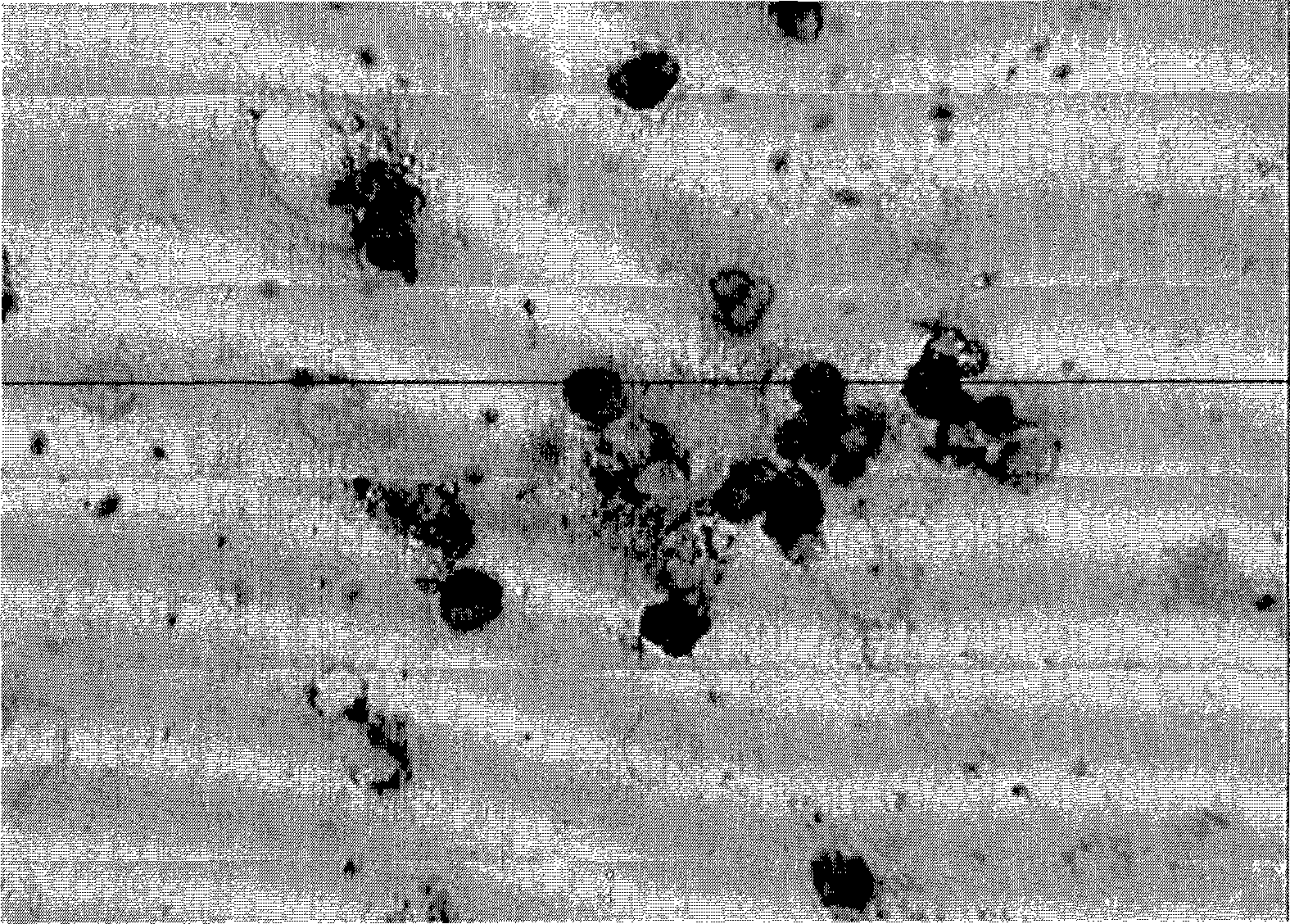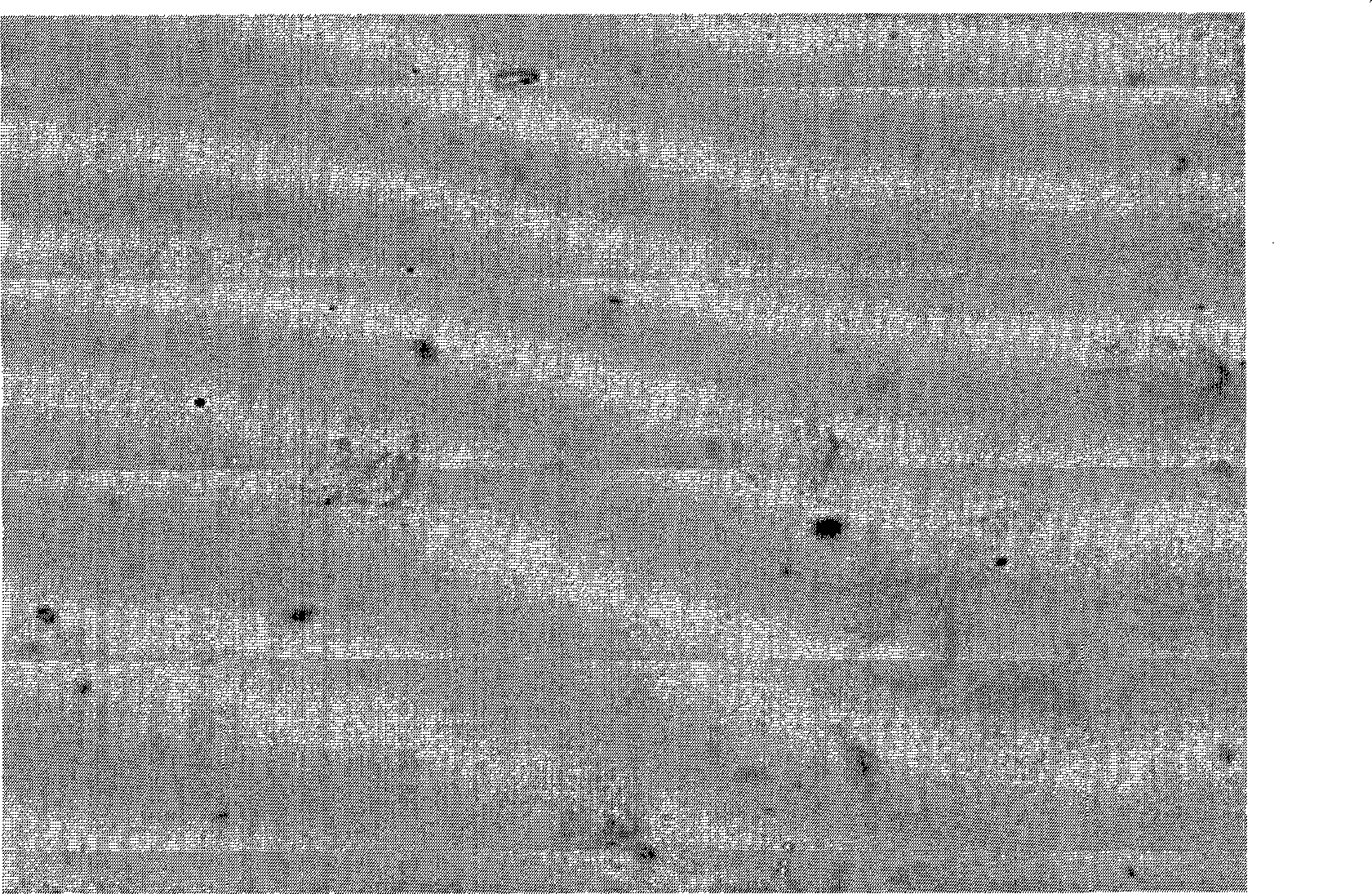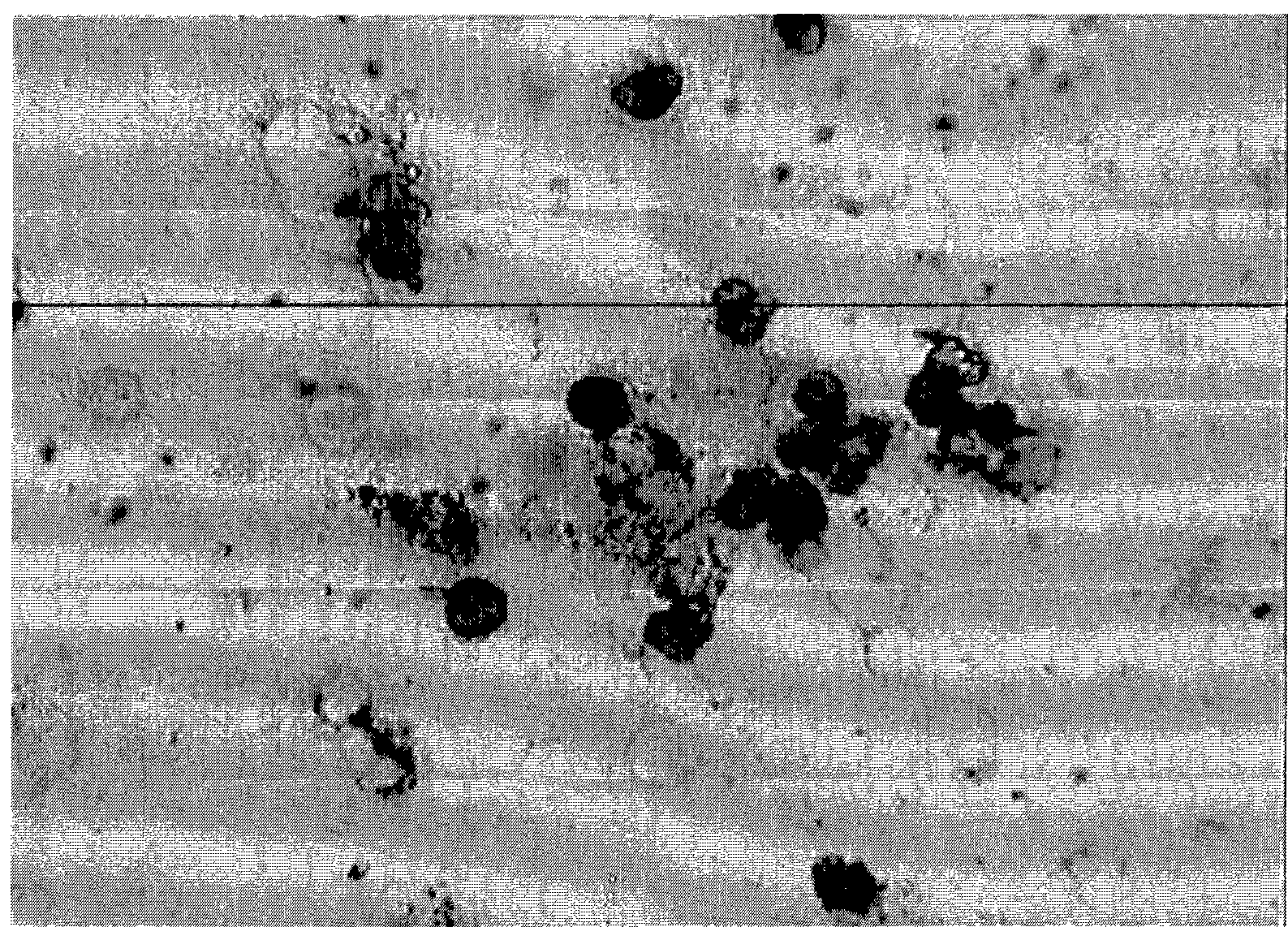In situ hybridization detection kit for early carcinoma of prostate, detecting method and use thereof
A technology for prostate cancer and detection kits, applied in the field of kits, can solve the problems of imperfect design ideas of anticancer drugs, no reports on detection technology, drug resistance of tumor cells, etc., and achieves high sensitivity, good sensitivity and specificity. strong effect
- Summary
- Abstract
- Description
- Claims
- Application Information
AI Technical Summary
Problems solved by technology
Method used
Image
Examples
Embodiment 1
[0046] An in situ hybridization detection kit for early prostate cancer, comprising a hybridization probe, a marker, and a potentiator, wherein the sequence of the hybridization probe is shown in SEQ ID NO.1. Hybridization probes were labeled with digoxigenin. The composition of other liquids and specimens in the kit is as follows:
[0047] Digestive solution 100μl / tube 1 tube / box Colorless transparent liquid
[0048] Protective solution 100μl / tube 1 tube / box Colorless transparent liquid
[0049] Pre-hybridization solution 1300μl / tube 2 tubes / box Colorless transparent liquid
[0050] Sense hybridization solution 10μl / tube 1 tube / box Colorless transparent liquid
[0051] Antisense hybridization solution 10μl / tube 1 tube / box Colorless transparent liquid
[0052] Blocking solution 1000μl / tube 1 tube / box Colorless transparent liquid
[0053] Alkaline phosphatase antibody 1μl / tube 1 tube / box Colorless transparent liquid
[0054] Chromogen A 175μl / tube 1 tube / box Yellow liquid...
Embodiment 2
[0097] A kind of in situ hybridization detection method of PCADM-1 gene and its kit application
[0098] 1. Specimen processing
[0099] 1. Use a 10ml centrifuge tube to fill 4.5ml of lymphocyte separation solution, then slowly add 3ml of anticoagulated blood into the centrifuge tube containing lymphocyte separation solution (blood: lymphocyte separation solution = 1:1.5), and centrifuge at 2000r / min 10min;
[0100] 2. Take the white blood cells in the middle layer into another centrifuge tube, then add about twice the amount of 1× buffer I to this tube, mix well, and centrifuge at 1500g / min for 10min;
[0101] 3. Discard the supernatant. Add about twice the 1× buffer I to the precipitate, mix well, and centrifuge at 1500g / min for 10min;
[0102] 4. Discard the supernatant, and absorb the excess liquid from the mouth of the test tube with paper towels. Then the precipitate was made into a suspension, dropped on a glass slide, and allowed to dry naturally. (Hospitals with c...
Embodiment 3
[0137] A comparative experiment between the detection of prostate cancer with PCADM-1 gene kit and the detection of prostate cancer with PSA and AMACR gene kits.
[0138] In recent years, more and more prostate cancers with low expression of PSA protein have been diagnosed clinically, and the sensitivity and specificity of PSA markers in the diagnosis of prostate cancer have been increasingly questioned. PCADM-1 is a recently discovered prostate cancer-related diagnostic marker 1. PCADM-1 is only expressed in prostate cancer tissue, not in BPH, high-grade prostatic intraepithelial neoplasia and seminal vesicle tissue, and not in other tumors, and the intensity of PCADM-1 expression increases with the increase of Gleasson score (+1—— —+5). In order to scientifically evaluate the specificity, sensitivity and accuracy of PSA, AMACR gene and PCADM-1 gene in the early diagnosis of prostate cancer. We use the method of parallel experiment to detect the mRNA of PSA, AMACR and PCADM...
PUM
 Login to View More
Login to View More Abstract
Description
Claims
Application Information
 Login to View More
Login to View More - R&D
- Intellectual Property
- Life Sciences
- Materials
- Tech Scout
- Unparalleled Data Quality
- Higher Quality Content
- 60% Fewer Hallucinations
Browse by: Latest US Patents, China's latest patents, Technical Efficacy Thesaurus, Application Domain, Technology Topic, Popular Technical Reports.
© 2025 PatSnap. All rights reserved.Legal|Privacy policy|Modern Slavery Act Transparency Statement|Sitemap|About US| Contact US: help@patsnap.com



